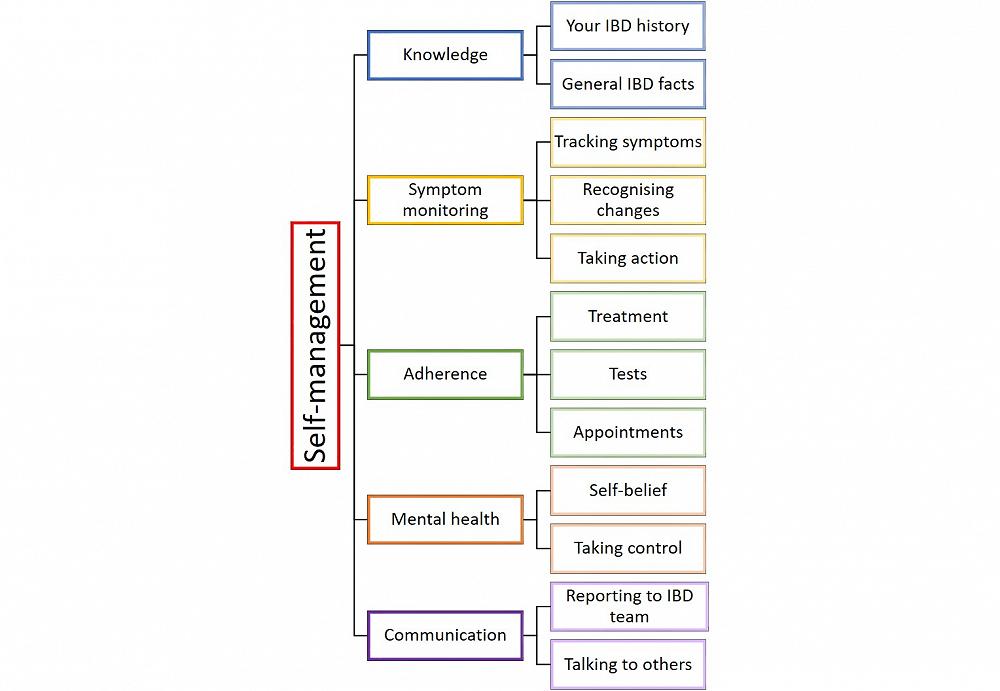
Learning self-management of your IBD.
IBD treatment can be complex. It can involve medications, appointments, laboratory tests, and x-rays to name just a few.
A skill found to be helpful for children and adults with IBD to juggle all these is called ‘self-management’, which means learning to take control of your treatment and gain the skills needed to manage your IBD on your own. Learning self-management skills has been shown to improve people’s overall health and their IBD, decrease the amount of school or work missed, improve quality of life, and reduce the need for healthcare visits. We’ve been doing various studies that focus on aspects of self-management for people with IBD.
There are five main parts to self-management: Knowledge, Symptom monitoring, Adherence, Thinking, and Communication (see Figure 1). By gaining skills in these areas, people can better self-manage their IBD, which will in turn benefit their outcomes.
There are two different types of knowledge that are helpful for self-management:
1. General facts about IBD - tests, treatments, outcomes
2. Knowing your own IBD history
There are lots of information sources available to learn facts about IBDs, great ones being the CCNZ website (www.crohnsandcolitis.org.nz) and the Living with IBD Handbook! To keep track of your own IBD history you could make a list of important information to keep with you. Examples may be a record of your diagnosis, how long you’ve had IBD, which parts of your gut are affected, previous surgeries, your current medications, allergies, and an emergency contact number.
Symptom monitoring is a very important skill to learn and it takes three forms:
1. Keeping track of your IBD symptoms
2. Recognising when your symptoms change – for the better or worse
3. Knowing what to do when your symptoms change
Keeping track of your symptoms using a symptom diary or mobile app will help you learn the other two skills. As an example, being able to see an improvement in your symptoms over time when you start new treatment will help you and your medical team. In addition, recognising when symptoms are getting worse will help you learn when to seek medical help.
The meaning of adherence is about sticking to the treatment plan that your medical team have given you. Adherence isn’t just about taking your medications, but also turning up for appointments, having tests done when they are needed, and letting your team know if you can’t manage any of these. No single way works for everyone, but some simple tricks that can improve adherence include using reminders for your medications such as pill-boxes next to your toothbrush, using mobile apps, and adding important dates in to your diary or calendar.
Developing self-management skills is also really helped when two thinking attributes are optimised. These are:
1. Self-belief and confidence that you can achieve the tasks that are involved in your IBD treatment
2. Taking control for completing tasks and being an active part of your IBD team
By improving your communication skills when talking about your IBD, your self-management may also get better. One idea may be to talk about your symptoms in IBD clinic using your symptom diary to show them how things have changed. When you talk about your IBD with your family, whānau, friends, or work colleagues, explain what your needs are, and how they may help.
Children and adults with IBD can learn self-management skills at any age and there is a great chance that you will see a benefit to your IBD as well as your overall well-being.
Figure 1. Self-management skills.

